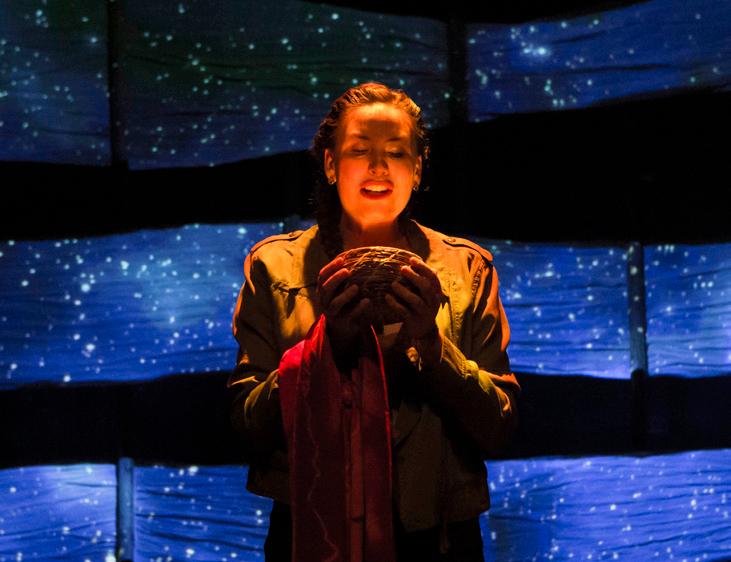
1 minute read
EXCERPTS FROM FIVE DECADES OF WONDER: INDIANA REPERTORY THEATRE
BY DONNA L. REYNOLDS
The 2019-2020 season brought the INclusion Series: Celebrating Diverse Storytelling. Three plays, each written by a person of color, each relating the experience of a different community, gave voice to untold stories. “Our intention with the INclusion series was to welcome new audiences to the theatre, whose stories have not appeared on stages, which is part of the joy of theatre-making,” Janet Allen said.
When it became clear that COVID-19 would prohibit in-person performances during the 2020-2021 season, six plays were chosen, designed, and cast to be streamed for virtual viewing only. The WFYI film team was engaged in the effort. All the while, Managing Director Suzanne Sweeney said, “We kept in mind that our first goal was to produce theatre.” With the help of funding from government agencies at the federal, state, and local levels; loyal supporters, both corporate and individual; and committed staff, IRT weathered the year-and-a-half shutdown. Over two COVIDimpacted seasons, 84 percent of season ticket holders faithfully renewed their subscriptions; 85 percent of Repertory Society households (donating $1,500 or more annually) renewed their gifts.

February 2023: After an extensive nationwide search, the Indiana Repertory Theatre announced the Theatre’s future Margot Lacy Eccles Artistic Director, Benjamin Hanna. Hanna is the current Associate Artistic Director; he officially steps into his new role after Janet Allen’s retirement on July 1, 2023. “I am deeply honored to serve as IRT’s next artistic leader,” said Hanna. “In our next chapter, I envision a theatre that is nationally celebrated, revered for producing challenging new works of the highest caliber, and is known as a leader in modeling equity and inclusion. I aspire to break down historic barriers to the Theatre and welcome new audiences by building communityresponsive programming. I am committed to using theatre’s transformative power to strengthen our cultural community, build spaces of belonging for historically marginalized voices, and to serve as a vital catalyst for conversation, education, empathy-building, and civic engagement.”









